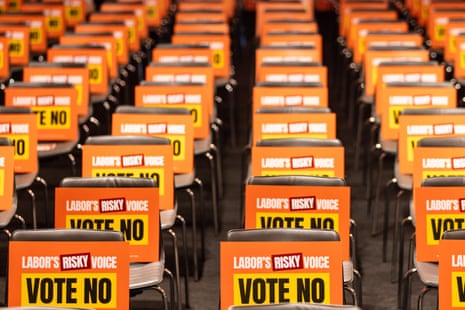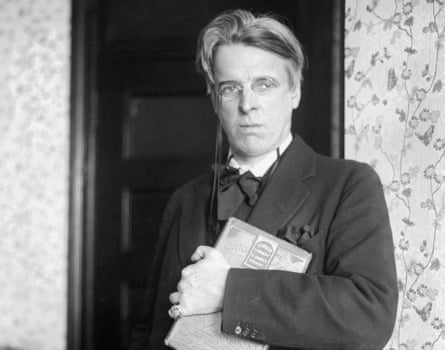
In 1920, halfway through the Irish war of independence from centuries of colonial control, W.B. Yeats published a poem, The Second Coming, which has an eerie echo here now.
Things fall apart; the centre cannot hold;
Mere anarchy is loosed upon the world
Yeats was writing about a very different time and place. His was a world devastated by the war to end all wars and a pandemic that had killed even more, in a country that had long craved independence and was ready to fight.
The blood-dimmed tide is loosed, and everywhere;
The ceremony of innocence is drowned
Australia’s federation fathers, and the second-rate poets who gave voice to their ambition, had convinced themselves a couple of decades earlier that theirs was a nation (the only one, ever) founded without bloodshed.
They were wrong. As politicians and regular newspaper readers they knew they were wrong, but the shame of acknowledgment, of saying it out loud, of owning the genocidal behaviour, meant Australians convinced themselves that the First Peoples were a “dying race”, and this myth grew in the vacuum.
For years the violence that preceded the nation was wrapped in the white blanket of forgetfulness; now its contemporary version, fearing division while promoting it, is paraded, and shouted.
The best lack all conviction, while the worst
Are full of passionate intensity.
We are now participants in an existential struggle between myth and truth, between meaningful recognition and a void, between hope and the active cultivation of mistrust.
Trust is the secret sauce of democratic politics. It is the reason all sides traditionally seek to uphold institutions, to ensure robust debate does not tip out of control, to acknowledge the primacy of the parliament and the democratic oversight of the courts.
John Howard campaigned on restoring trust to Australian politics in 1996, but ever since, despite an early Covid blip, it has fallen. Institutions have revealed their structural flaws and lost authority. Just as importantly, as robodebt showed, governments are reluctant to trust the people. Politicians wring their hands in despair but do little.

What makes the voice campaign different is that two major political parties – the Liberal party and the National party – are helping sow the seeds of mistrust. They learned the lessons from One Nation and are now poisoning the well in which they operate.
Embedded in the carefully tested messages that shaped the no campaign is an apparent ambition to foster mistrust in the parliamentary process to develop legislation, in the Australian Electoral Commission to conduct elections, in the high court to judge cases on their merits.
The no case in the AEC brochure encourages people to visit three websites: riskyvoice.com; oneandfree.au and Australiansforunity.com.au. Loaded words designed to provoke a response. Click through and they take you to the Liberal party, National party and Warren Mundine’s taxpayer-supported group.
Distrust and mistrust are self-propagating, but can be countered. Big things can grow from little seeds
For the first time in recent years Australian retail politics teeters on the brink of violence. Racist attacks are rampant. In suburb after suburb, there are nightly battles to restore vandalised yes posters and replace those that have been stolen. Women who are visible yes supporters routinely post videos of those not seeking a discussion, but an opportunity to abuse. Elders, welcoming guests to country at major events are more likely to be heckled, as happened before the Wynton Marsalis Lincoln Jazz Orchestra in Brisbane. It doesn’t take a lot for things to fall apart.
But this is not just a story of cultivated mistrust, and the anarchy it invites.
It is about Aboriginal and Torres Strait Islander people being willing to trust government and the Australian people after decades of betrayal. That is not something to tinker with.
Distrust is the bedrock of their experience. It has solid foundations. It is the kernel that shapes the responses of those who still wake in fear of a knock at the door, those exhausted by intractable legal processes, those who patiently keep notes every time government landlords fail to keep properties habitable, or the police fail to respond to emergency calls.
In Australia, the bottom million, the most impoverished, the most incarcerated, are overwhelmingly Indigenous – their position hard baked into the system since before federation.
Distrust has grown in response to empty promises. It began in the earliest days, through the years of protection and assimilation, and in the tardy responses to royal commissions and inquiries.
Commitments were not kept; bureaucratic processes twisted to protect the status quo. Even after prime ministers accepted responsibility the response has fallen short. Children were taken from their families the same year as Kevin Rudd’s apology to the stolen generations, Paul Keating took responsibility for taking the land but did not shift the onus of proof in the native title process which meant cases took decades, Julia Gillard continued the Northern Territory intervention long after its failure was evident.
Or as Uncle Rick Nelson who welcomed the concert for yes in Castlemaine’s Theatre Royal on Dja Dja Wurrung land said as he urged a yes vote: “Vote yes. But know, those government buggers can play tricks on you. We’ve got to be careful how we go.”
Putting distrust aside to propose a better way of working with the Australian people and government was the great imaginative leap of faith that emerged from Uluru. A deliberate choice not to give in to despair, not to allow distrust to breed cynicism, or violence. The antithesis of a declaration of war.
That is why the Uluru statement is often described as generous.
Distrust and mistrust are self-propagating, but can be countered. Big things can grow from little seeds. If the Uluru offer to talk together is not accepted, things will get worse: discredited notions of assimilation and denial are back on the agenda. With vigilance and generosity things may not fall apart; the centre may hold.
And what rough beast, its hour come round at last,
Slouches towards Bethlehem to be born?
No comments:
Post a Comment